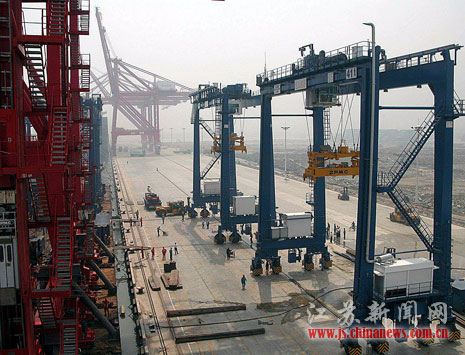Miracle of the Yangtze
Clusters of culture
Beginning in the second half of the 20th century, the development of regional economies around the world entered a city-led stage. As the process of urbanization sped up, clusters of cities led the charge.
|
The Lianyungang Port of Jiangsu Province. |
At present, there are five internationally recognized world-class city clusters: The Boston-New York-Washington region, with more than 50 cities; the Great Lakes region in the United States, with more than 35 cities; the Tokaido region in Japan, with 310 cities; the central and southern UK region and the northwestern Europe region, with Paris, Brussels and Amsterdam.
In 2008, the State Council of the People's Republic of China proposed to build the Yangtze River Delta into a strong and competitive world-class city cluster.
"From the development track of the world's five major city clusters, we can see that in order to gain international recognition, the city cluster must show vitality in political, business and academic circles in addition to international influence in economic and technological development," said Zhou Liqun, vice director of the Coastal Development Institute of Nankai University. He emphasized that hosting the World Expo is one of the best ways for the delta to achieve this goal.
The five major city clusters have all hosted World Expos, some of them several times. Twenty-eight Expos have been held in these areas. It is unlikely that the prosperity of these regions and their history of hosting World Expos is a coincidence. "The Shanghai World Expo will give the world a more open and civilized image of the Yangtze River Delta, and will no doubt bring great international prestige to the region," said Liu Zhibiao, executive director of the Research Center for Yangtze River Delta Economic and Social Development at Nanjing University.
 0
0 







